A recent Naveen Jindal School of Management webinar explored a few ways corporate leaders and partner organizations are formulating their sustainability strategies.
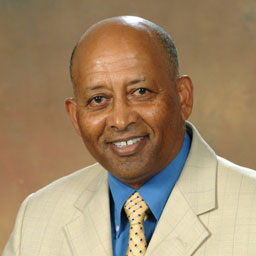
“Sustainability can be broadly defined as thinking and acting in terms of rational allocation of resources,” said Dr. Habte Woldu, a professor of organizations, strategy and international management in the Jindal School and director of its Sustainable Global Business Initiative (SGBI).
The initiative, a collaboration between JSOM’s Center for Global Business and the Ann and Jack Graves Charitable Foundation, hosted the July 16 Summer Sustainability Webinar, which evolved from a virtual conference — Sustainability as a Solution to Global Business Challenges — the initiative hosted in April.
The trio of featured speakers at the July event came from a mix of companies:
- a nonprofit founded by former first lady Laura Bush, Texan by Nature;
- a multinational food and beverage corporation; PepsiCo; and
- a heating, air conditioning and refrigeration manufacturer, Trane Technologies.
The representatives discussed their approaches, tactics and results in regard to sustainability.
The Pandemic a Plus for Conservation
Jenny Burden, program manager at Texan by Nature, the nonprofit founded by Laura Bush to help businesses advance conservation across the state, spoke about how the coronavirus pandemic has affected the organization and its partners, and what to expect in the future.
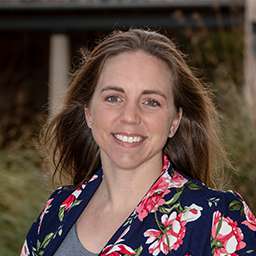
“What’s going to advance conservation in the state and make things work in the long term is ensuring that the work that’s going on is beneficial, not only to natural resources, but also to people and economic drivers that depend on those natural resources,” she said.
Although the pandemic caused funding shifts and reductions for conservation organizations, Burden said, it also proved that natural resources are important to communities all over the state, both urban and rural, due to the need for outdoor spaces to help maintain social distancing.
“It wasn’t a few weeks into the pandemic,” she said, “[and] we were already hearing how important park space was, how much usership was rising among parks and green space users.”
Some businesses, she said, benefited from economic slowdowns caused by the pandemic in making strides toward implementing and solidifying conservation efforts. Business leaders “had a little bit of breathing room to explore conservation as an option.”
Going forward, she said, sustainability is already built into those businesses’ standard operating procedures, so it will be easier to maintain.
Rethinking Consumption and Customer Needs
Ryan Spicer, senior manager of global sustainability at PepsiCo, said company leaders think about sustainability in terms of the company’s entire value chain. From its own manufacturing and distribution capabilities to sustainable practices of its supply partners and agricultural sources, the company looks for ways to reduce its carbon footprint.
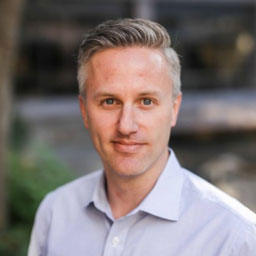
The company even goes so far as to try influencing how consumers use its products, Spicer said. Sodastream, a subsidiary company that manufactures a home carbonation product of the same name, is a result of those efforts.
“We’re trying to rethink — how do people consume our products and does it have to come in a plastic bottle or a metal can?” he asked. “Is there a different way to for us to meet customer needs?”
Reducing the Carbon Footprint
Ben Tacka, sustainability programs leader at Trane Technologies, said leaders at the company understand that they are part of an industry capable of addressing about 25 percent of global greenhouse gas emissions. The company, he said, has set a “whole host” of commitments to accomplish by 2030, including reducing customer carbon footprints by 1 gigaton and achieving carbon net neutral operations globally.
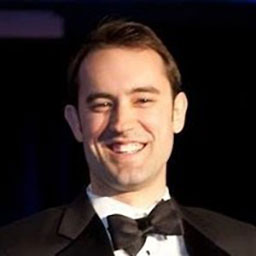
“The transition,” he said, will involve becoming “an entire building management services business in which we are vertically integrated with the best equipment in the world so [that] we are providing systemic reduction of energy, waste and intensity through improving the building envelope, which includes windows, includes lighting [and] focusing on building automation.”
Other innovations such as thermal storage, he said, will help shift demand to periods where electricity is “cleaner and cheaper.”
“We’re also providing ways for companies to directly buy renewable energy through virtual power purchase agreements,” he said.
The endgame for the company, Tacka said, is “a coordinated and adaptive building automation system that’s enhanced with a focused energy procurement strategy, and making sure that our equipment is in there to deliver everything that it needs to deliver, using … the smallest amount of electricity that it possibly needs to meet those standards.”
Acquiring the Sustainability Mindset
After the presentations concluded, Hubert Zydorek, a JSOM associate professor, program director and director of the Center for Global Business, led a question-and-answer period. He framed the discussion by explaining that the audience consisted primarily of UTD students.
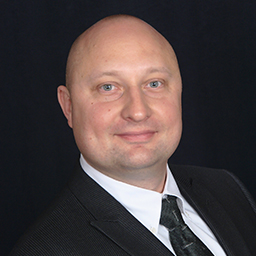
“Most of our business students,” he said, “may not … go into sustainability as a career, but they need to still have the sustainability mindset.”
Zydorek then asked presenters what advice they had for students to help them acquire that mindset. Spicer prefaced his answer by explaining that he works with a variety of colleagues in his work on sustainability for PepsiCo.
“I work with people from tax and legal and treasury and procurement and finance,” he said. “Everybody in the company touches sustainability, one way or the other.”
Spicer said having a sustainability mindset would help students become business innovators who can offer new products, new services or even new business models.
“Think about your customers and your consumers and what they are going to need for the future,” he said.






